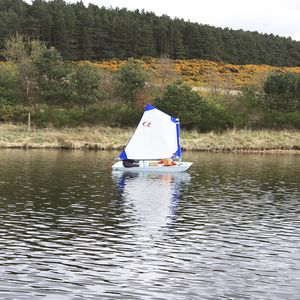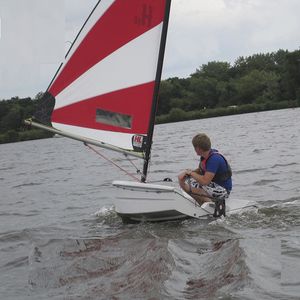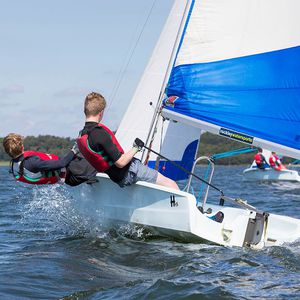
- Sailing
- Dinghy sailing
- Single-handed sailing dinghy
- Hartley Boats
- Products
- Catalogs
- News & Trends
- Exhibitions
Single-handed sailing dinghy Wandererregattarecreationalinstructional







Add to favorites
Compare this product
Characteristics
- Crew
- single-handed
- Use
- regatta, recreational, instructional
- Other characteristics
- symmetric spinnaker
- Length
4.27 m
(14'00" )
Description
The big question on Hartley Boats agenda, could we improve this already very successful training boat? This outstanding training dinghy was already used by many of the UK’s leading training schools and sailing clubs, together with many holiday companies
The answer was, YES, with new technology and the best Naval Architect Phil Morrison on board and with the will and determination to make this training sailing dinghy even better This then would deliver even better training results! No changes to the hull, the chined built Wanderer is the most STABLE dinghy of its size class in the world You can even stand two adults on the side-deck without the boat capsizing No change to the hull but we would reduce the buoyancy in the side tanks as with many other dinghy’s far too much buoyancy makes the centreboard float too high making it difficult to right after capsize
Get rid of the bath full of water to a few of inches would be a major benefit to training schools Give a choice of asymmetric or symmetric spinnaker, move the thwart further aft to give more room for the crew Lowering the inner skin nearer to the hull floor, would make more leg room and make a more comfortable seating position Re-position the bailers take them out of the way of feet to under the thwart. A self-draining cockpit with rear drain tubes and a boat with little maintenance would be a great benefit Slab reefing is standard but the option of a reefable genoa system that within twentyfive seconds you are able to trim the sail to adapt to changing wind conditions together with balancing the boat would also be a great advantage The boat must still be able to sit on a mooring and be real value for money
*Prices are pre-tax. They exclude delivery charges and customs duties and do not include additional charges for installation or activation options. Prices are indicative only and may vary by country, with changes to the cost of raw materials and exchange rates.






